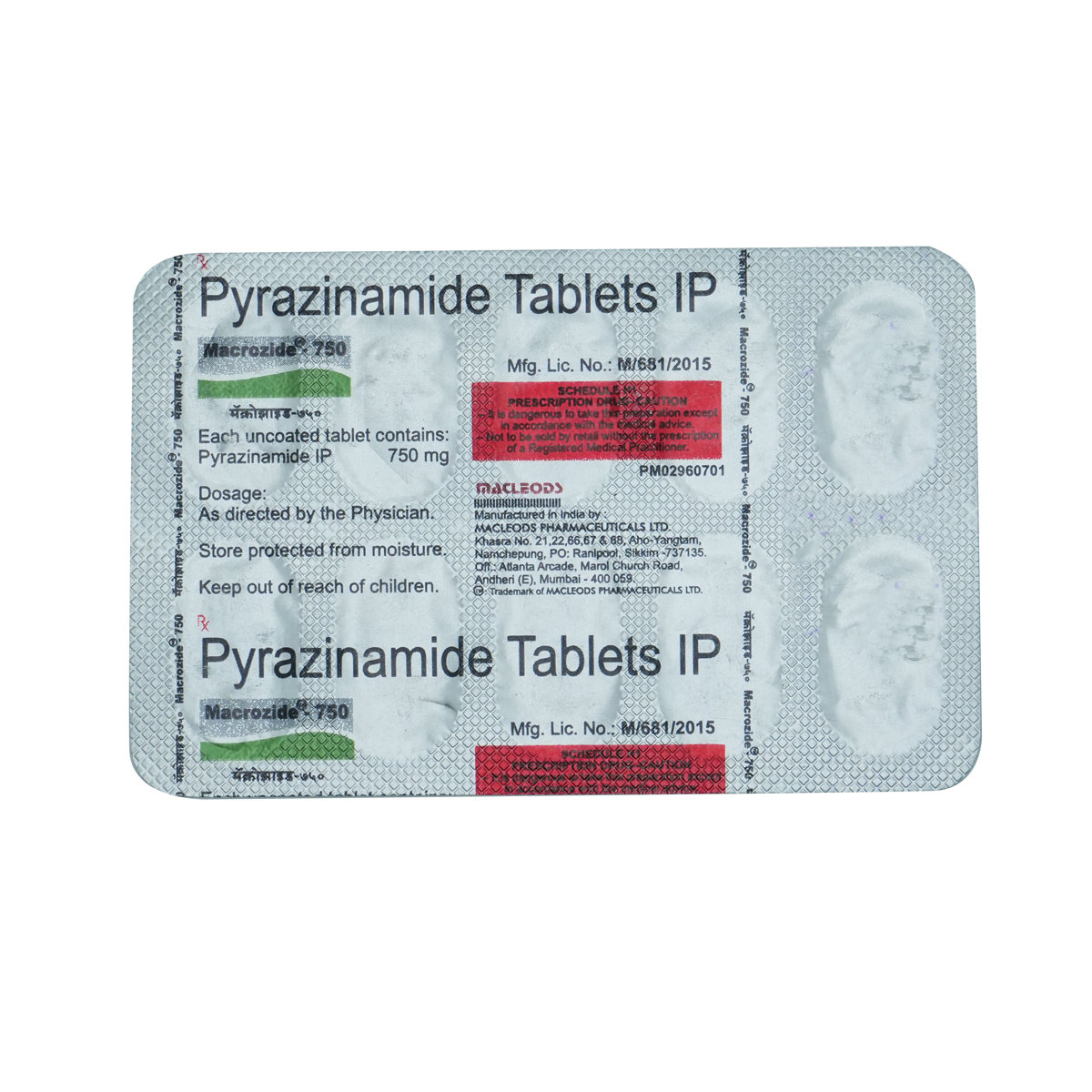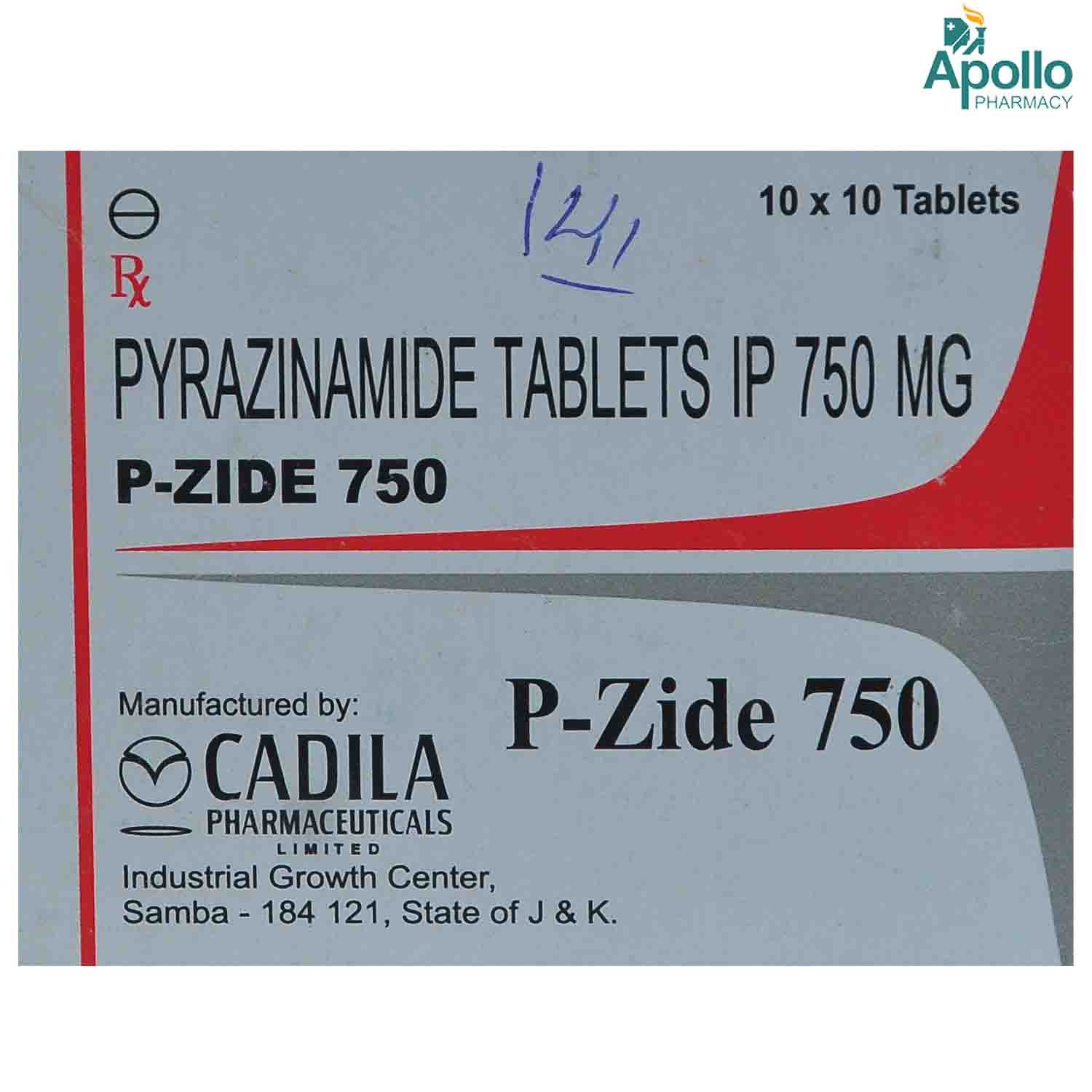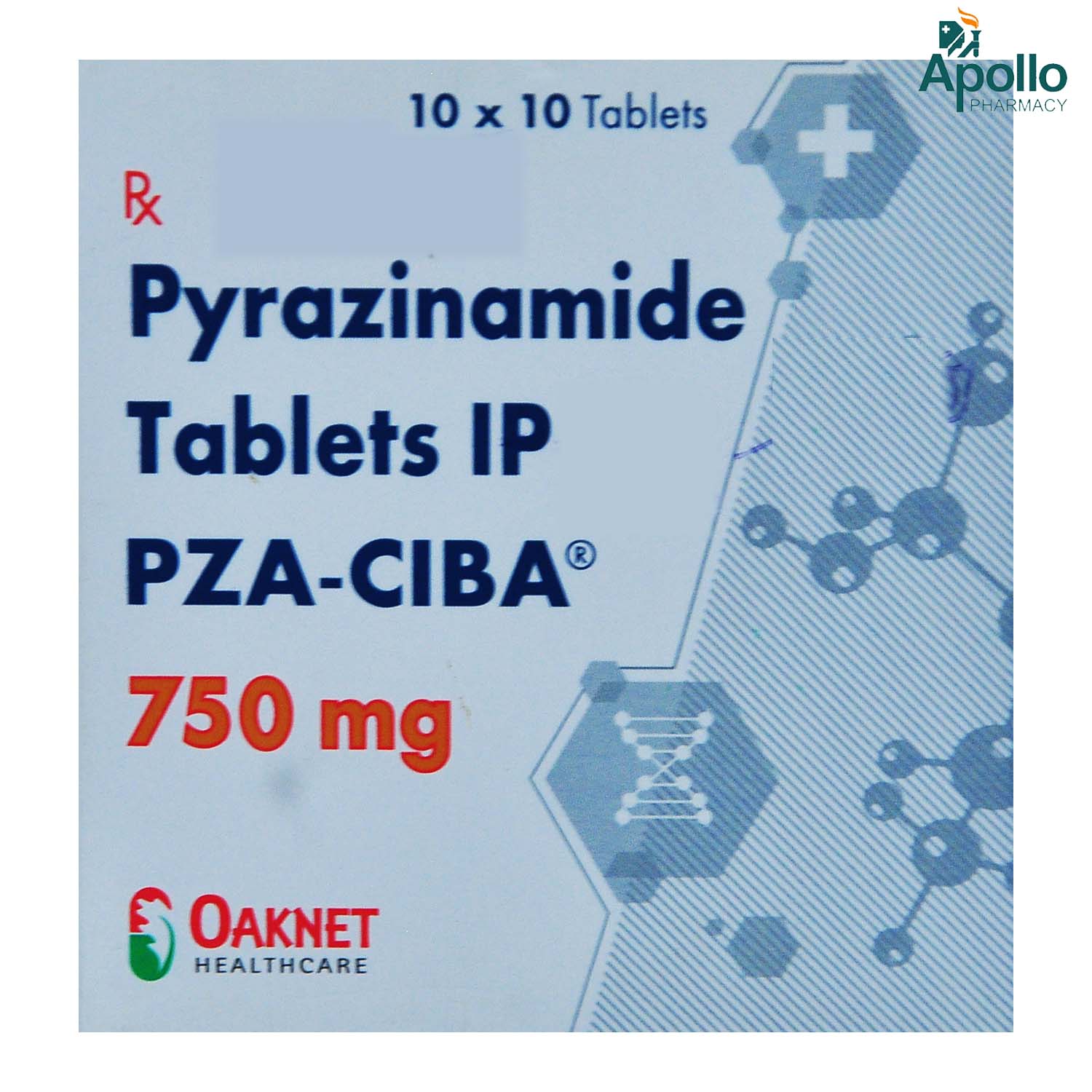Pyzina 750 Tablet
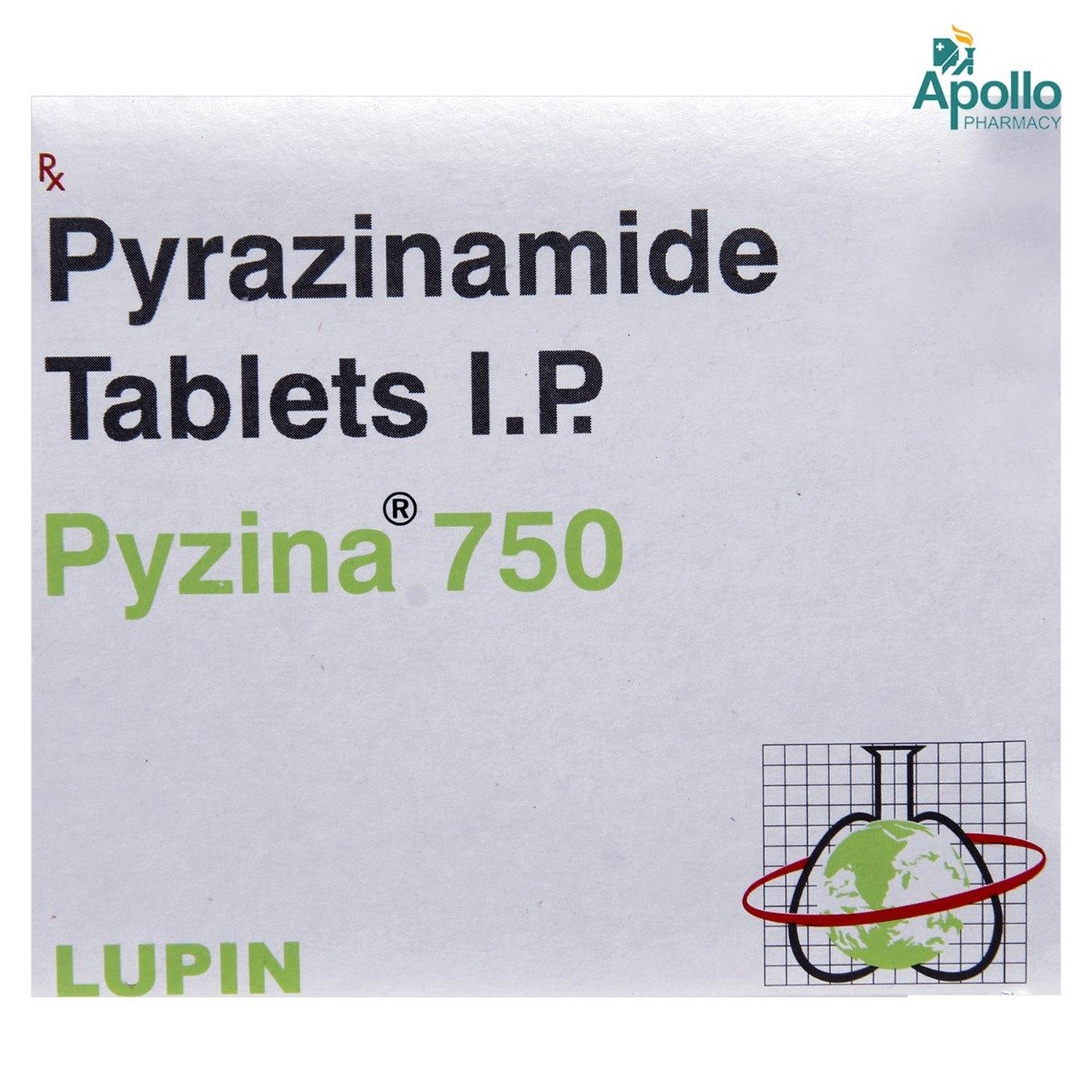
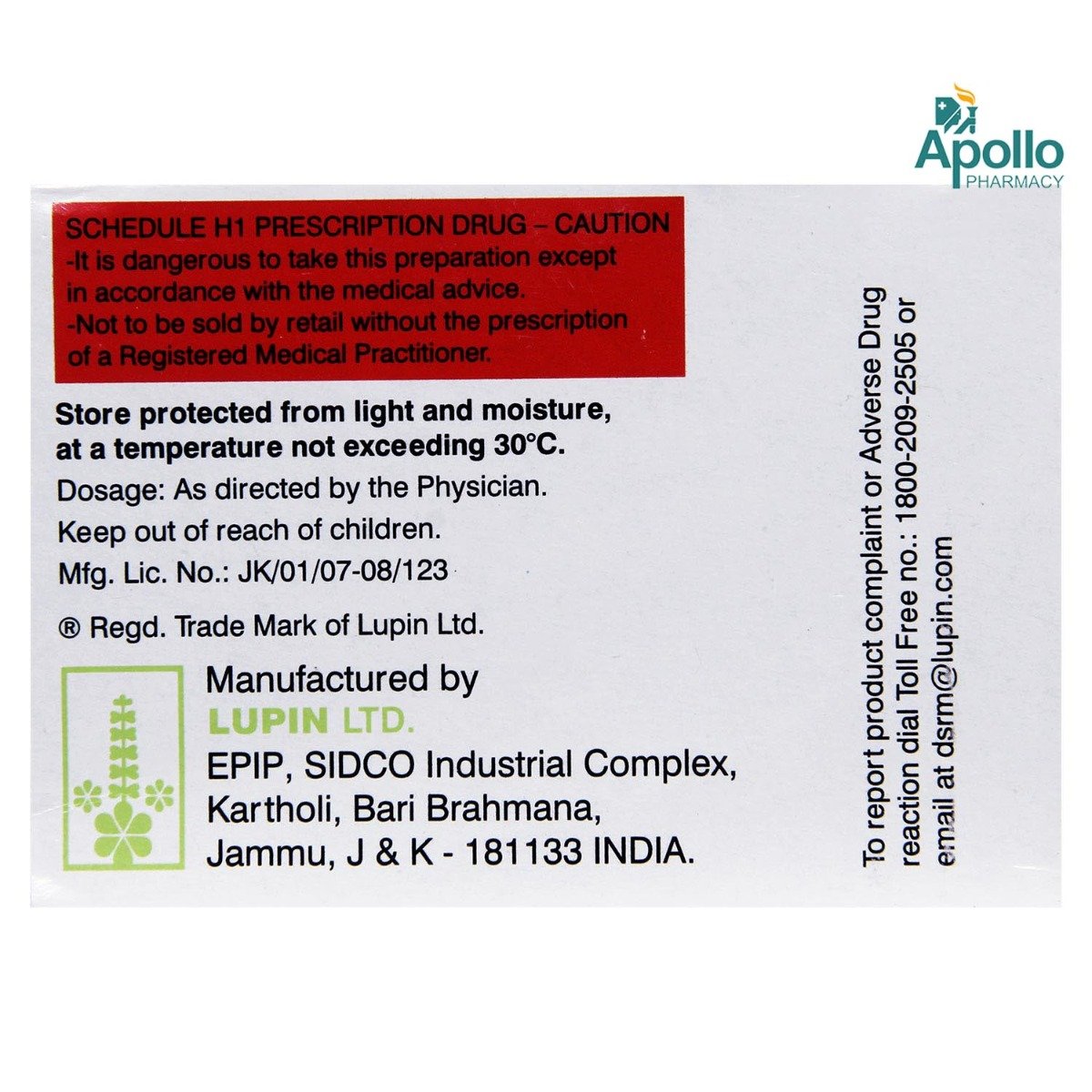
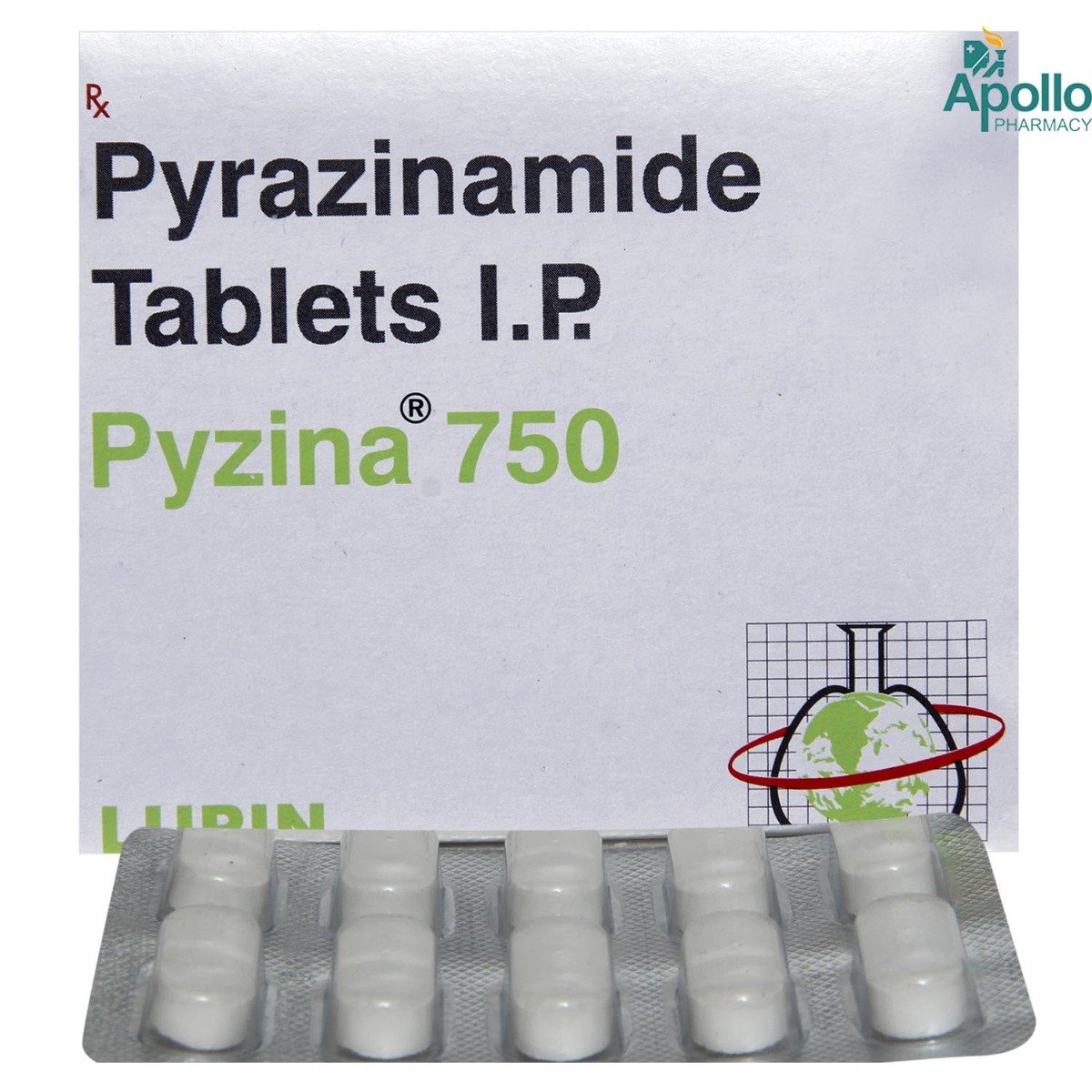
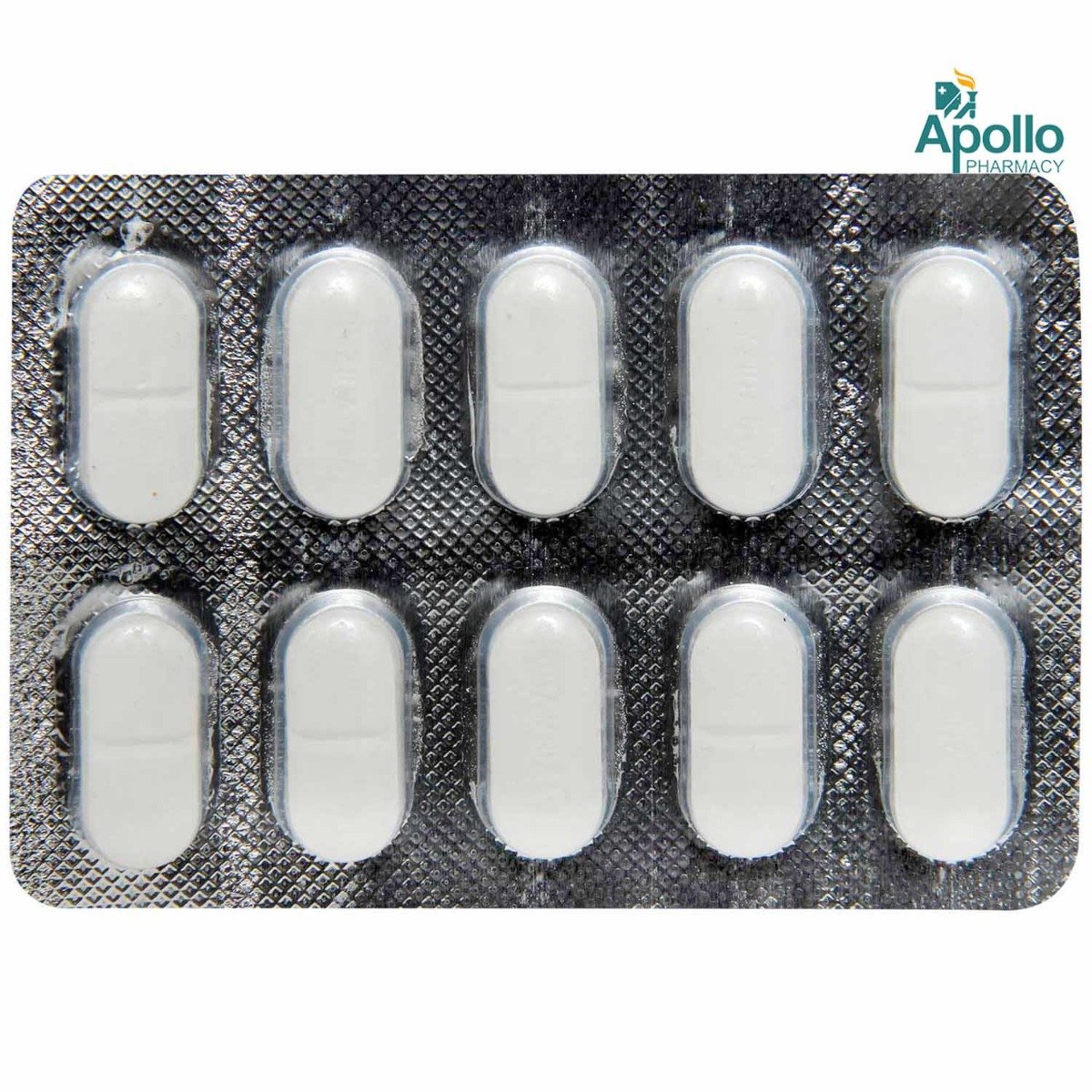
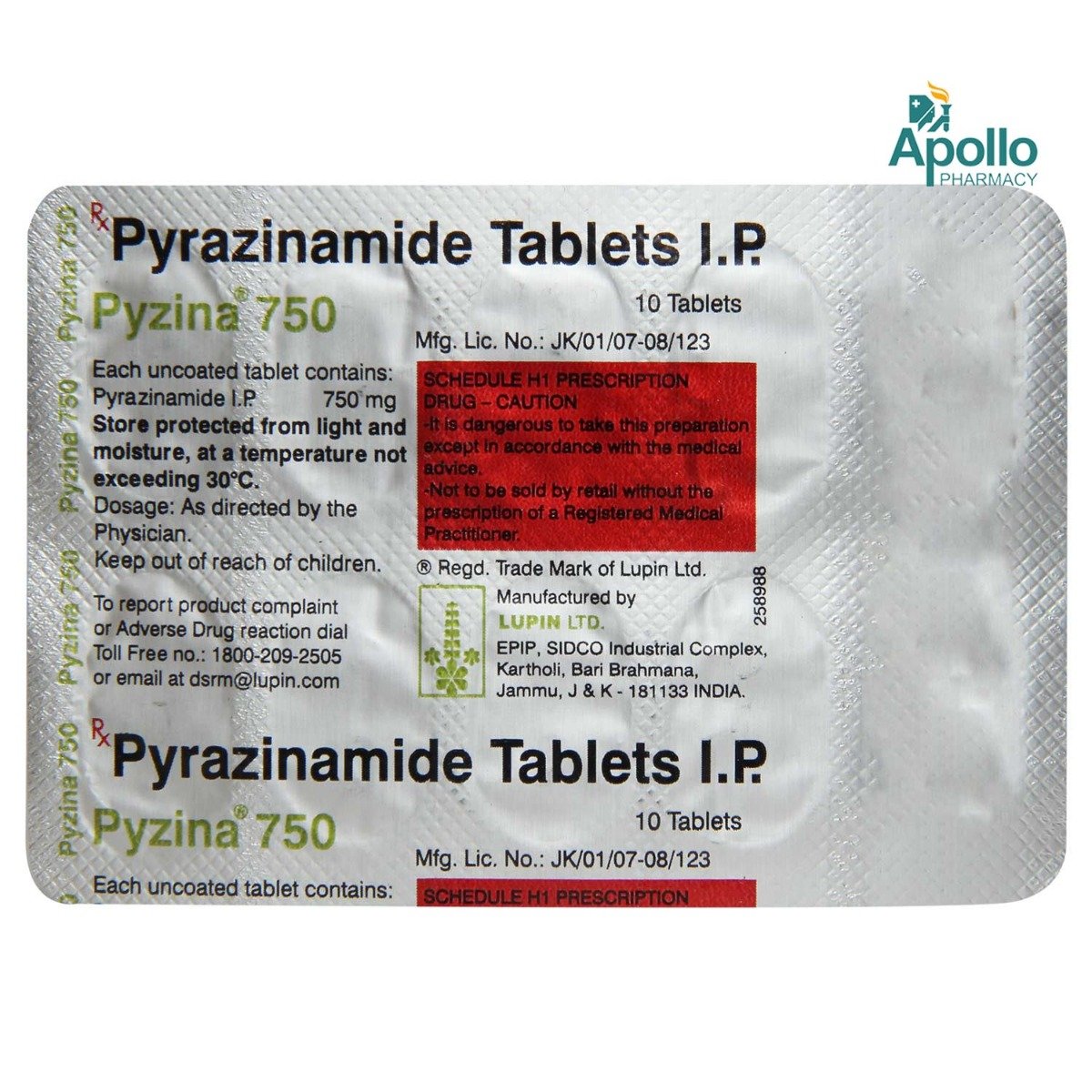
MRP ₹75.5
(Inclusive of all Taxes)
₹11.3 Cashback (15%)
know your delivery time
Provide Delivery Location
Composition :
Manufacturer/Marketer :
Consume Type :
Expires on or after :
Return Policy :
NPPA :

Secure Payment

Trusted by 8 Crore Indians

Genuine Products
Therapeutic Class
Country of origin
Manufacturer/Marketer address
Author Details
We provide you with authentic, trustworthy and relevant information
Disclaimer
Alcohol
Safe if prescribed
You are recommended to avoid alcohol consumption while taking Pyzina 750 Tablet . Alcohol intake, along with Pyzina 750 Tablet , may cause increased liver damage. Please consult your doctor for more information.
Pregnancy
Consult your doctor
Pyzina 750 Tablet should be used with caution during pregnancy. Please consult your doctor before taking Pyzina 750 Tablet if you are pregnant or planning to conceive.
Breast Feeding
Consult your doctor
Pyzina 750 Tablet is not recommended for use during breastfeeding since it is excreted into the breast milk and may harm a nursing baby. Please consult your doctor if you are a breastfeeding mother.
Driving
Safe if prescribed
It is not known if Pyzina 750 Tablet alters the ability to drive. Do not drive if you experience any symptoms that affect your ability to drive or operate machinery.
Liver
Consult your doctor
Pyzina 750 Tablet is not recommended in patients with severe liver damage. Please consult your doctor since Pyzina 750 Tablet should be used with caution in patients with liver impairment/liver disease. Regular monitoring of the liver with liver function tests is also advised.
Kidney
Consult your doctor
Please consult your doctor since Pyzina 750 Tablet should be used with caution in patients with kidney impairment/kidney disease. Your doctor may adjust the dosage in case of renal dysfunction.
Children
Safe if prescribed
Pyzina 750 Tablet is recommended in children below 12 years of age only after doctor's advice.
About Pyzina 750 Tablet
Pyzina 750 Tablet belongs to the group of medicines called 'anti-tuberculosis' drugs primarily used to treat and prevent tuberculosis. Tuberculosis is an infectious disease that mainly affects the lungs, but it can also spread to other body parts such as kidneys, brain, spine and bone marrow. Pyzina 750 Tablet does not work against infections caused by the virus, such as the common cold and flu.
Pyzina 750 Tablet contains 'Pyrazinamide'. Pyrazinamide is a chemically synthesised bacteriocidal antibiotic. It converts a special enzyme to an active form that inhibits the synthesis of fatty acids; this disrupts the cell membrane and disables energy production necessary for the survival of the TB bacteria.
Your doctor will decide the dose and duration based on the severity of your disease. Common side effects of Pyzina 750 Tablet include muscle/joint pain, nausea, vomiting and loss of appetite. These side effects are not familiar to everyone and vary individually. If you notice any side effects that are not manageable, please consult your doctor.
Let your doctor know if you use any prescription and non-prescription medications you are taking, including other vitamins, before starting Pyzina 750 Tablet . Please tell your doctor if you are allergic to Pyzina 750 Tablet or its components. Inform your doctor beforehand if you have a history of liver or kidney diseases, diabetes, gout, high uric acid level in the blood, alcohol use and are undergoing dialysis. It is essential to let your doctor know if you are pregnant, planning to conceive or are a breastfeeding mother. Avoid consuming alcohol along with Pyzina 750 Tablet as it might lead to liver problems.
Uses of Pyzina 750 Tablet
Medicinal Benefits Mweb
Key Benefits
Pyzina 750 Tablet contains 'Pyrazinamide', which is used to treat and prevent tuberculosis. Pyrazinamide is a chemically synthesised bacteriocidal antibiotic. It converts a special enzyme to an active form that inhibits the synthesis of fatty acids; this disrupts the cell membrane and disables energy production necessary to survive the TB bacteria. It is usually given in alone or combined with other antitubercular agents to treat tuberculosis.
Directions for Use
Side Effects of Pyzina 750 Tablet
- Muscle/joint pain
- Nausea
- Vomiting
- Loss of appetite
- Hepatitis, liver dysfunction
Drug Warnings
Brief your medical history to the doctor if you have any liver or kidney diseases, diabetes, gout, high uric acid level in the blood, lactose intolerance, alcohol use and are undergoing dialysis treatment before starting Pyzina 750 Tablet . Let your doctor know if you are undergoing any vaccinations with live bacterial vaccines (like typhoid vaccine) since Pyzina 750 Tablet may affect vaccine's activity. Please consult your doctor know if you are pregnant, planning to conceive or are a breastfeeding mother before starting Pyzina 750 Tablet . Avoid consuming alcohol along with Pyzina 750 Tablet as it might lead to liver problems. Store Pyzina 750 Tablet below 25°C away from direct sunlight.
Drug-Drug Interactions
Drug-Drug Interactions
Login/Sign Up
Co-administration of Lomitapide with Pyzina 750 Tablet may increase in the risk or severity of liver problems.
How to manage the interaction:
Although taking Lomitapide and Pyzina 750 Tablet together can evidently cause an interaction, it can be taken if a doctor has suggested it. If you have any of these symptoms, it's important to contact your doctor immediately: fever, chills, joint pain, swelling, bruising, skin rash, itching, loss of appetite, fatigue, nausea, vomiting, abdominal pain, dark-colored urine, or bleeding. Do not stop using any medications without a doctor's advice. Do not discontinue the medication without consulting a doctor.
Co-administration of Ketoconazole with Pyzina 750 Tablet may increase the risk or severity of liver damage.
How to manage the interaction:
Although taking Ketoconazole and Pyzina 750 Tablet together can result in an interaction, it can be taken if a doctor has prescribed it. However, if you have any of the following symptoms: fever, chills, joint pain or swelling, unusual bleeding or bruising, skin rash, itching, fatigue, lack of appetite, nausea, vomiting, abdominal pain, dark urine, light stools, and/or yellowing of the skin or eyes, consult a doctor immediately. Do not discontinue the medication without consulting a doctor.
Co-administration of Teriflunomide with Pyzina 750 Tablet may increase the risk or severity of liver damage.
How to manage the interaction:
Although taking Teriflunomide and Pyzina 750 Tablet together can evidently cause an interaction, it can be taken if a doctor has suggested it. If you have any of these symptoms, it's important to contact your doctor immediately: fever, chills, joint pain, swelling, bruising, skin rash, itching, loss of appetite, fatigue, nausea, vomiting, abdominal pain, dark-colored urine, or bleeding. Do not stop using any medications without a doctor's advice. Do not discontinue the medication without consulting a doctor.
Taking rifampicin together with Pyzina 750 Tablet can cause liver problems.
How to manage the interaction:
Although there is an interaction between Pyzina 750 Tablet and rifampicin, they can be taken together if prescribed by a doctor. However, if you experience fever, rash, less desire to eat, nausea, vomiting, fatigue, right upper abdominal pain, or dark urine, contact your doctor immediately. Do not discontinue any medications without consulting a doctor.
Co-administration of leflunomide with Pyzina 750 Tablet may increase the risk or severity of liver problems.
How to manage the interaction:
Although taking Leflunomide and Pyzina 750 Tablet together can cause an interaction, they can be taken together if prescribed by a doctor. However, if you experience fever, chills, joint pain or swelling, unusual bleeding or bruising, skin rash, itching, less desire to eat, fatigue, nausea, vomiting, abdominal pain, or yellowing of the skin or eyes, contact a doctor immediately. Do not discontinue any medications without consulting a doctor.
Drug-Food Interactions
Drug-Food Interactions
Login/Sign Up
Drug-Diseases Interactions
Drug-Diseases Interactions
Login/Sign Up
Drug-Drug Interactions Checker List
- PROBENECID
- SULFINPYRAZONE
Habit Forming
Special Advise
- Let your doctor know that you are taking Pyzina 750 Tablet if you are undergoing any medical tests.
- Your doctor may advise liver enzymes and uric acid levels tests before you start treatment to make sure you can safely take Pyzina 750 Tablet .
- It is advised to undergo liver functioning tests to keep a check on your liver function.
- Use a reliable contraceptive method (such as condoms or a diaphragm) to prevent pregnancy while you are taking Pyzina 750 Tablet as it may make hormonal contraceptives such as the pill less effective.
Diet & Lifestyle Advise
- Pineapple juice might help soothe the symptoms of cough and cold. It also has anti-inflammatory and mucolytic properties.
- Foods rich in vitamin C, such as kiwi, broccoli and bell pepper, help improve the immune system.
- Avoid processed and fried foods.
- Warm ginger tea or warm soup can help in providing relief from the cough.
- Avoid foods and drinks, such as cured meat, matured cheese, soya, tuna, salmon, mackerel, wine and beer.
- Quit smoking and avoid alcohol consumption.
All Substitutes & Brand Comparisons
RX
Not for online saleMacrozide-750 Tablet 10's
Macleods Pharmaceuticals Ltd
₹67.5
(₹6.08 per unit)
10% CHEAPERRX
Not for online saleP-Zide 750mg Tablet 10's
Cadila Pharmaceuticals Ltd
₹75.5
(₹6.8 per unit)
RX
Not for online salePZA CIBA 750MG
Novartis India Ltd
₹75.5
(₹6.8 per unit)

Have a query?
Buy best Infections & Infestation products by
Cipla Ltd
Macleods Pharmaceuticals Ltd
Alkem Laboratories Ltd
Lupin Ltd
Abbott India Ltd
Sun Pharmaceutical Industries Ltd
Mankind Pharma Pvt Ltd
Micro Labs Ltd
Aristo Pharmaceuticals Pvt Ltd
FDC Ltd
Intas Pharmaceuticals Ltd
Glenmark Pharmaceuticals Ltd
Ipca Laboratories Ltd
Torrent Pharmaceuticals Ltd
Zydus Healthcare Ltd
Biochem Pharmaceutical Industries Ltd
Zuventus Healthcare Ltd
United Biotech Pvt Ltd
Hetero Drugs Ltd
Emcure Pharmaceuticals Ltd
Alembic Pharmaceuticals Ltd
Indoco Remedies Ltd
Fusion Health Care Pvt Ltd
Dr Reddy's Laboratories Ltd
Leeford Healthcare Ltd
Cadila Healthcare Ltd
Wockhardt Ltd
Zydus Cadila
GlaxoSmithKline Pharmaceuticals Ltd
Morepen Laboratories Ltd
Blue Cross Laboratories Pvt Ltd
Cadila Pharmaceuticals Ltd
Converge Biotech Pvt Ltd
Elder Pharmaceuticals Ltd
Hetero Healthcare Pvt Ltd
Pfizer Ltd
AAA Pharma Trade Pvt Ltd
Gufic Bioscience Ltd
Mylan Pharmaceuticals Pvt Ltd
Corona Remedies Pvt Ltd
Wallace Pharmaceuticals Pvt Ltd
Apex Laboratories Pvt Ltd
Medishri Healthcare Pvt Ltd
Akumentis Healthcare Ltd
Alniche Life Sciences Pvt Ltd
Hegde & Hegde Pharmaceutica Llp
Veritaz Healthcare Ltd
Ranbaxy Laboratories Ltd
Koye Pharmaceuticals Pvt Ltd
Shreya Life Sciences Pvt Ltd
Overseas Health Care Pvt Ltd
Biocon Ltd
Indchemie Health Specialities Pvt Ltd
Medley Pharmaceuticals Ltd
Brinton Pharmaceuticals Ltd
J B Chemicals & Pharmaceuticals Ltd
Unifaith Biotech Pvt Ltd
Ajanta Pharma Ltd
Biochemix Health Care Pvt Ltd
Natco Pharma Ltd
Samarth Life Sciences Pvt Ltd
Unichem International
Laborate Pharmaceuticals India Ltd
Unipark Biotech Pvt Ltd
Zymes Bioscience Pvt Ltd
Indiabulls Pharmaceuticals Pvt Ltd
Neon Laboratories Ltd
Vasu Organics Pvt Ltd
DR Johns Lab Pharma Pvt Ltd
East West Pharma India Pvt Ltd
La Renon Healthcare Pvt Ltd
Medgen Drugs And Laboratories Pvt Ltd
Novartis India Ltd
Canixa Life Sciences Pvt Ltd
Icarus Health Care Pvt Ltd
Lincoln Pharmaceuticals Ltd
Celon Laboratories Pvt Ltd
Concept Pharmaceuticals Ltd
Klm Laboratories Pvt Ltd
Nicholas Piramal India Ltd
Systopic Laboratories Pvt Ltd
Yuventis Pharmaceuticals
Capital Pharma
German Remedies Ltd
Pristine Pearl Pharma Pvt Ltd
Unison Pharmaceuticals Pvt Ltd
Aurz Pharmaceutical Pvt Ltd
Clover Health Care Pharma
Kepler Healthcare Pvt Ltd
Allites Life Sciences Pvt Ltd
Auspharma Pvt Ltd
Intra Life Pvt Ltd
Jolly Healthcare
Linux Laboratories Pvt Ltd
Ozone Pharmaceuticals Ltd
Cachet Pharmaceuticals Pvt Ltd
Comed Chemicals Ltd
Delcure Life Sciences Ltd
Fresenius Kabi India Pvt Ltd
Khandelwal Laboratories Pvt Ltd



